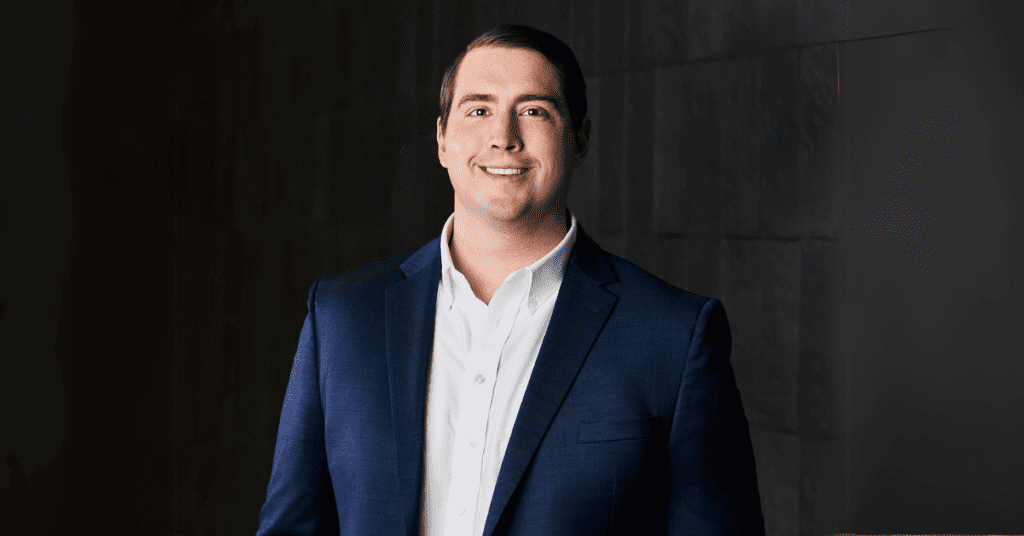Please provide your information and submit this form. Our team will be in touch with you shortly.

The story is told of an occasion when comedian George Burns, who had recently passed his 100th birthday, was asked, “What’s the best thing about living past 100?” The old comic, without batting an eye, replied, “Less peer pressure.”
The tongue-in-cheek rejoinder makes a valid point: At different stages of life, different matters take priority. Many of us can remember the burning need, at around age 16, to pass our driver’s test, get our license, and gain the freedom of transportation represented by our first car. Those approaching college graduation are typically intently focused on scoring that first job and starting on the foundation of a career. Newly married, mid-career professional, approaching retirement… each life phase brings with it a new set of challenges and priorities.
The financial journey is no different. At each phase of life, we all face different needs, challenges, and priorities for our financial resources. But there are a few general principles that can help persons at various stages of life make sure they’re focused on the right priorities as they navigate the financial landscape. Let’s take a look.
When you’re just starting out, there can be many distractions. For one thing, it’s common for recent college graduates to be bombarded with “pre-approved” credit card offers that make it sound like easy money is there for the taking. But beware: becoming dependent on credit cards is one of the main ways to set yourself up for a difficult financial lifestyle. Instead, one of the most important mindsets you can establish at this phase of life is the savings habit. Make it your goal to set aside a consistent percentage of your earnings in a savings account, with the goal of building toward setting up an investment program for long-term growth. Another important way to get off on the right foot with savings is to participate in your employer’s retirement plan. And even if your employer doesn’t offer a sponsored plan, set up your own individual retirement account (IRA) and build systematic deposits into your monthly budget.
And speaking of budgets, this is probably the next most important part of your financial strategy for the future. Knowing what you have coming in and going out each month is the only way to stay in control of your financial destiny. Think of your budget as a stool with three legs: spending, saving, and investing. Forming the budgeting habit early in life and using it to maintain oversight of your financial activity is a key part of developing the money mindset that leads to financial security throughout your life.
When you’re starting out, it’s also important to pay attention to managing various risks. Having the right type of insurance—in the right amounts—is one of the most important decisions for young professionals and those starting families. Your life, health, and property are your most important assets, and making sure that these risks are properly insured is a foundational part of any financial plan.
Those who have cultivated the right mindset and built a solid career will eventually start looking toward the day when they can leave the nine-to-five routine behind and spend more time doing the things they really want to do. This is the point in the life cycle when you really learn to be grateful for the savings and investments built during the saving years. In those last few years before retirement, it’s still important to continue building savings, especially since you are likely near the peak of your earning power. This is the time to maximize contributions to your employer-sponsored and other retirement accounts, including taking advantage of the catch-up contributions available to those 50 and older.
Remember, too, that you never outgrow the need for a budget. In fact, as you approach retirement, budget forecasting that takes into consideration the likely costs of your desired retirement lifestyle can be an essential planning tool to help you match your available resources with your anticipated outlays. This, by the way, is where the services of a professional fiduciary financial planner can be invaluable. With various modeling and forecasting tools, a financial planner can help you discover gaps in your planning and give you greater peace of mind as you approach retirement.
Those who have done well frequently wish to leave behind a legacy that benefits others. But creating a lasting philanthropic legacy involves much more than money. For those whose thoughts are turning toward the best way to benefit future generations, it is essential to gain clarity around their core values, the type of change they most wish to effect in the world, and the best mechanisms to put in place for effecting that change. They will also want to consider how they want their efforts to be viewed across generations and the priorities that will both align with their most valued principles and also stand the test of time.
In many cases, the specific goals of the legacy may dictate many decisions. Organizing a family foundation, for example, has a number of ramifications regarding governance, succession planning, and other factors that differ from those for a public charity dedicated to a particular cause. Prospective donors should also give attention to matters around due diligence and ongoing assessment.
The right professional tax, legal, and estate planning advice is crucial for those wishing to establish a lasting philanthropic legacy. Careful attention and reliable guidance is needed to ensure that the organization is tax-efficient well positioned to maintain and perpetuate the vision of the founders.
Aspen Wealth Management understands the importance of focusing on the right priorities at each stage of the wealth journey. Our fiduciary obligation to our clients ensures that each client’s unique needs and interests are always the top priority. To learn more, visit our website to read our article, “No Kids = No Need for Estate Planning? Not Really.”